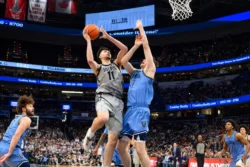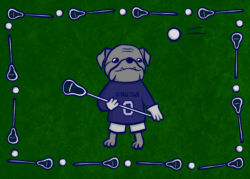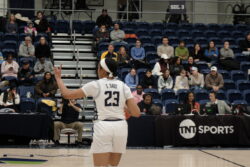On April 12, 2013, University of North Carolina hoops star P.J. Hairston announced that he would return to Chapel Hill for his junior season. Today, less than a year later, Hairston’s statement has become a punchline. Since that April day, shame and embarrassment have replaced any hopes fans had for a storied season from Hairston at UNC. Multiple arrests, ties to a convicted felon, and an NCAA investigation have culminated in Hairston’s permanent dismissal from the Tar Heel basketball program.
Strangely, however, in NBA offices around the country, P.J, Hairston’s troubled past seems to be a minor factor in his pro stock. A risk? Sure. But to call him unlawful or deviant appears to be considered a slight to his character. Hairston, now a member of the NBA’s Development League, will be paid a modest salary this season playing for the Texas Legends and will likely be drafted in the first round of the 2014 NBA Draft in June.
Hairston’s situation represents the most high-profile case in what is now a series of players who have fled for professional waters after their off-court activities damaged their collegiate careers.
Consider Glen Rice Jr., today a member of the NBA’s Washington Wizards. Three separate suspensions during his career with the Georgia Tech Yellow Jackets culminated in dismissal after Rice both shot a gun and drove under the influence. Eight months later, Rice joined the D-League’s Rio Grande Valley Vipers.
Shabazz Muhammad, currently a guard for the Minnesota Timberwolves, was suspended during his one-year career at UCLA for receiving improper benefits and was discovered to have been lying about his age (he was a year older than he suggested). After leaving college, the trend continued: Muhammad became just the fourth player to be sent home from the NBA’s rookie transition program when he violated program rules by having a female guest in his room. Today, Muhammad is fighting to stay in the NBA.
The common takeaway from each player’s story is the growing role of the NBA, and its Development League, as a safety net for college basketball’s “problem” players. The irony is incredible. Reaching the NBA is supposed to represent the pinnacle of a player’s development, both on and off the court. At least in the days of high school-to-NBA pros like LeBron James, the prerequisite for making the jump was talent. Today, the catalyst appears to be the end of a privileged opportunity, as players appear to be ushered out of deteriorating situations and into the open arms of the pros. We don’t think of the collateral damage players like P.J. Hairston cause for the teammates and coaches they leave in their wake. This season, UNC is 10-6 and is one piece away from being a legitimate championship contender. Instead of joining his teammates this week in ACC play, P.J. Hairston and the Texas Legends will suit up against the Rio Grande Valley Vipers this Friday in a game “broadcast nationally” on YouTube.
A system must be put in place to prevent college and high school players from “getting out of Dodge” and replacing their legal troubles with salaries in the millions. The idea that a player can be kicked off his college team for too many arrests and then find a home in the NBA will be labeled by many as “the business side of sports.” Players like Hairston have talent that leads to wins that lead to revenue. Regardless of his off-the-court problems, some NBA teams will be willing to roll the dice on Hairston.
To me, that’s absurd. I am all for giving someone a second chance, but in cases where a player has demonstrated repeated irresponsibility and has NCAA investigations hovering over his head, I see no reason why he should be allowed to move on to a paid basketball career. Create a mandated waiting period, wait until the NCAA investigations are resolved and penalties are served. Just do something. It’s time to make basketball a little more respectable and fair for players who do things the right way. Let’s start with the P.J. Hairston.
To me, that’s absurd. I am all for giving someone a second chance, but in cases where a player has demonstrated repeated irresponsibility and has NCAA investigations hovering over their head, I see no viable reason why they should be allowed to move on to a paid basketball career. Create a mandated waiting period, wait until the NCAA investigations are resolved and penalties are served. Just do something. It’s time to make basketball a little more respectable and fair for players who do things the right way. Let’s start with the P.J. Hairston situation.





